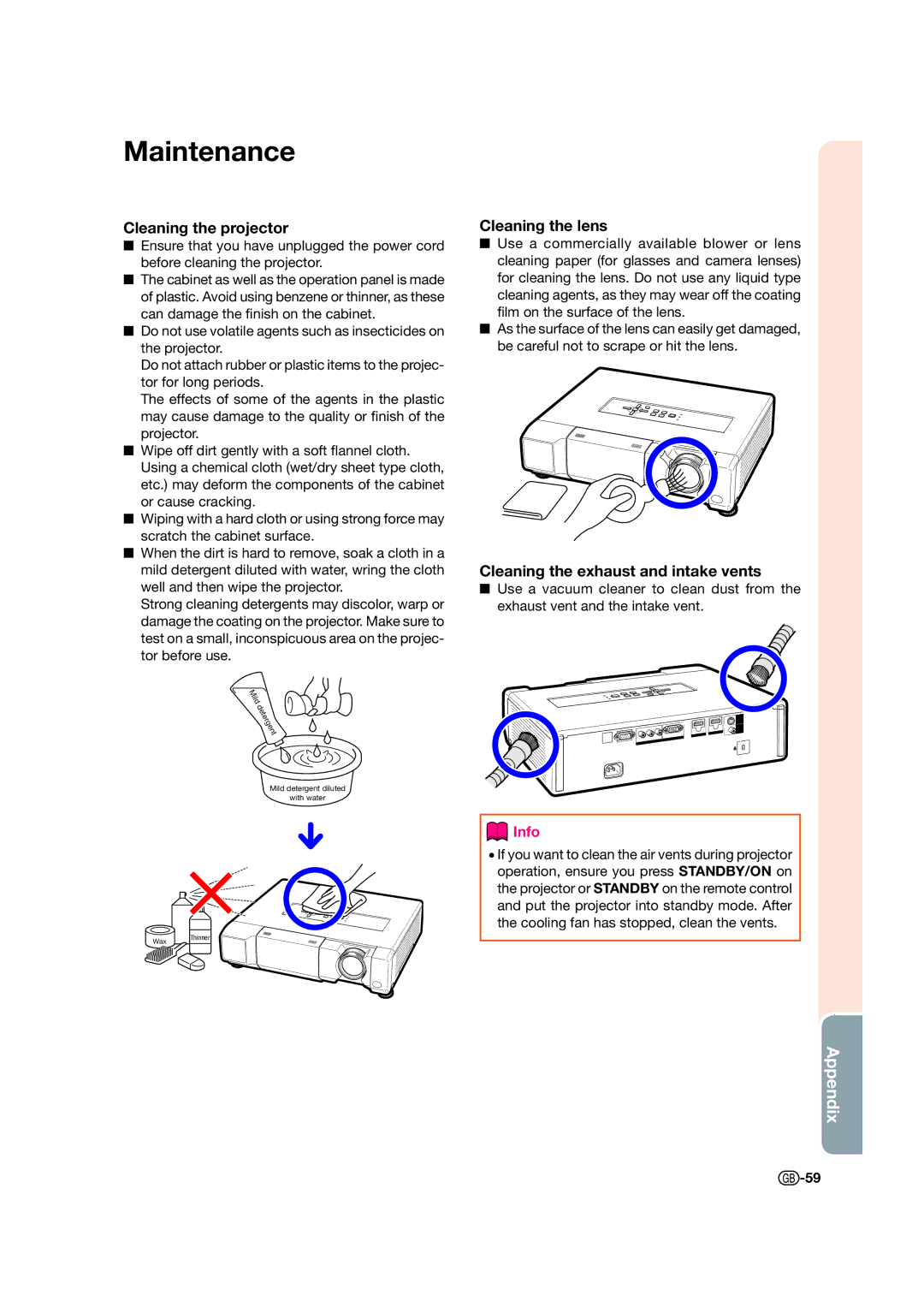
Maintenance
Cleaning the projector
Ensure that you have unplugged the power cord before cleaning the projector.
The cabinet as well as the operation panel is made of plastic. Avoid using benzene or thinner, as these can damage the finish on the cabinet.
Do not use volatile agents such as insecticides on the projector.
Do not attach rubber or plastic items to the projec- tor for long periods.
The effects of some of the agents in the plastic may cause damage to the quality or finish of the projector.
Wipe off dirt gently with a soft flannel cloth. Using a chemical cloth (wet/dry sheet type cloth, etc.) may deform the components of the cabinet or cause cracking.
Wiping with a hard cloth or using strong force may scratch the cabinet surface.
When the dirt is hard to remove, soak a cloth in a mild detergent diluted with water, wring the cloth well and then wipe the projector.
Strong cleaning detergents may discolor, warp or damage the coating on the projector. Make sure to test on a small, inconspicuous area on the projec- tor before use.
Cleaning the lens
Use a commercially available blower or lens cleaning paper (for glasses and camera lenses) for cleaning the lens. Do not use any liquid type cleaning agents, as they may wear off the coating film on the surface of the lens.
As the surface of the lens can easily get damaged, be careful not to scrape or hit the lens.
Cleaning the exhaust and intake vents
Use a vacuum cleaner to clean dust from the exhaust vent and the intake vent.
Wax
Mild detergent diluted
with water
Thinner
 Info
Info
•If you want to clean the air vents during projector operation, ensure you press STANDBY/ON on the projector or STANDBY on the remote control and put the projector into standby mode. After the cooling fan has stopped, clean the vents.
Appendix
![]() -59
-59
